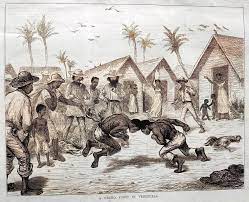What to look for in headass meaning

Welcome headass meaning to the intriguing world of slang lingo, where words and phrases take on a life of their own. Today, we delve into the enigmatic term “headass,” a word that has sparked curiosity, confusion, and even controversy among language enthusiasts. Join us as we unravel the origins, meanings, contexts, and evolution of this unique expression. Whether you’re a seasoned linguist or simply intrigued by modern vernacular, get ready to explore the fascinating realm of “headass” like never before!
The Origin of the Term
The term “headass” may sound like a quirky blend of words, but its origins are rooted in the rich tapestry of urban slang. While the exact genesis remains somewhat elusive, it is believed to have emerged from African American Vernacular English (AAVE) and gained popularity in online communities.
Some speculate that “headass” originated as a playful insult or descriptor, highlighting someone’s eccentric or foolish behavior. Over time, the term has evolved to encompass a range of meanings, from teasing camaraderie to gentle ribbing among friends.
As with many colloquial expressions, the true birthplace of “headass” may never be definitively pinpointed. What remains undeniable is its ability to capture a sense of lighthearted jest and camaraderie within contemporary language landscapes.
Defining the Meaning of
When it comes to the term “headass,” defining its meaning can be a bit tricky for those unfamiliar with its context. At its core, being a headass typically refers to someone who acts foolishly or lacks common sense in their behavior or decisions.
However, the term is not always used negatively and can sometimes convey a sense of humor or light-hearted teasing among friends. It’s often about poking fun at someone’s quirky or goofy actions rather than outright criticism.
In some circles, being called a headass can even be seen as endearing, showcasing a person’s unique personality traits that set them apart from the crowd. It’s all about understanding the nuances and dynamics of relationships within specific social groups when interpreting this slang term.
So next time you come across someone using the term “headass,” remember that it’s not always meant to offend but rather to playfully acknowledge someone’s eccentricities and quirks in a lighthearted manner.
Interpreting Different Contexts of
When it comes to interpreting different contexts of the term “headass,” it’s essential to consider the nuances involved. The meaning can vary depending on the situation, tone, and relationship between individuals.
In a light-hearted conversation among friends, being called a headass might be taken as playful banter or teasing. It could even be a term of endearment within certain friend groups where sarcasm reigns supreme.
On the other hand, in a professional setting or with someone unfamiliar with slang terms, being labeled as a headass could come across as disrespectful or offensive. Context matters greatly in how this term is perceived and received by others.
Understanding these varying interpretations underscores the importance of communication and knowing your audience when using colloquial language like “headass.” It’s all about context and gauging appropriateness in different scenarios.
How to Use
So, you’ve heard the term “headass” thrown around and you’re wondering how to use it in your everyday conversations. Well, fret not because I’m here to guide you on navigating this slang term with finesse.
First things first, understand that “headass” is a versatile term that can be used jokingly or seriously depending on the context. It’s all about gauging the situation and knowing when to drop it into conversation for maximum impact.
One way to use “headass” is when someone says or does something foolish or absurd. You can playfully call them out by saying, “Stop being such a headass!” It adds a touch of humor while getting your point across.
Alternatively, if someone is being overly dramatic or exaggerating a situation, you can say something like, “Don’t be so headass about it.” This shows that you’re acknowledging their behavior without taking it too seriously.
Remember, using slang terms like “headass” requires a certain level of understanding and rapport with the people you’re talking to. So gauge the vibe and dive in when the moment feels right!
The Evolution of
As language continually evolves, so do the meanings of words and phrases we use. The term “headass” has also undergone its own evolution over time. Originally used as a derogatory slang term, it has transformed into a more light-hearted expression in certain contexts.
In today’s vernacular, being called a headass can be playful banter among friends rather than an insult. It has evolved to encompass various shades of meaning depending on the tone and relationship between individuals using it.
The evolution of “headass” reflects how language adapts to social dynamics and changing attitudes. What was once considered offensive may now be embraced with humor and camaraderie.
Just like any other linguistic shift, the evolution of “headass” showcases the fluidity of communication and how words can take on new nuances as society changes around them.
Criticisms and Controversies Surrounding the Term
As with any popular slang term, “headass” has not been without its fair share of criticisms and controversies. Some argue that the term can be derogatory or offensive when used in certain contexts, especially towards individuals who may already feel marginalized or vulnerable.
Others believe that the term is simply a playful way to tease someone for their foolish or clueless behavior, without any malicious intent. However, it’s essential to consider how language evolves and how words can carry different meanings depending on the speaker’s tone and intention.
While some may find the term lighthearted and humorous, others may interpret it as disrespectful or demeaning. It’s crucial to be mindful of the impact our words have on others and to use them thoughtfully and responsibly.
Like many slang terms, “headass” is open to interpretation and debate. It’s important to engage in conversations about language sensitively while also recognizing the fluidity of linguistic expression.
Conclusion: Embracing the Versatility of
Embracing the Versatility of Headass Meaning
Exploring the term “headass” reveals its dynamic nature and adaptability to various contexts. Whether used in jest among friends or as a playful insult, the term has evolved to embody a wide range of meanings depending on tone and delivery. By understanding its origin, defining its meaning, interpreting different contexts, learning how to use it effectively, and acknowledging criticisms surrounding it, we can appreciate the versatility of “headass.” So next time you come across this quirky term in conversation or online, embrace its flexibility and have fun deciphering its intended message!




